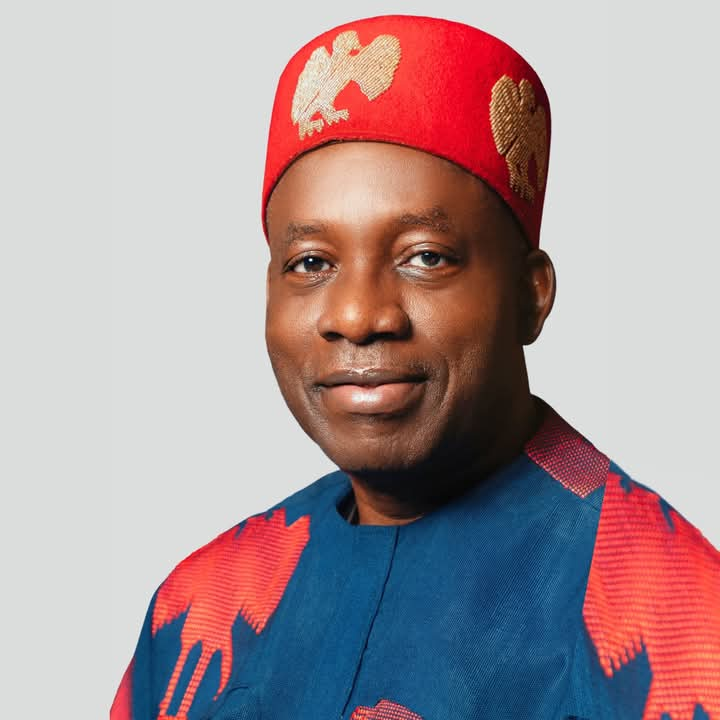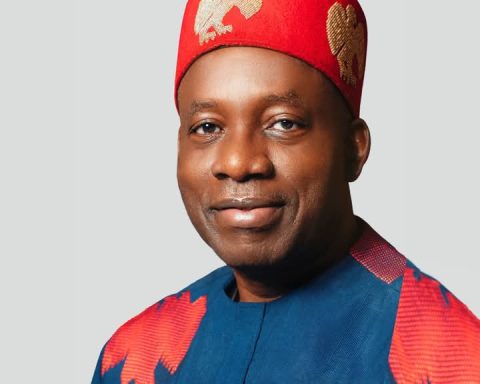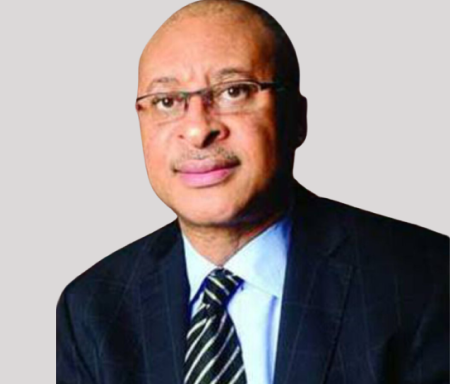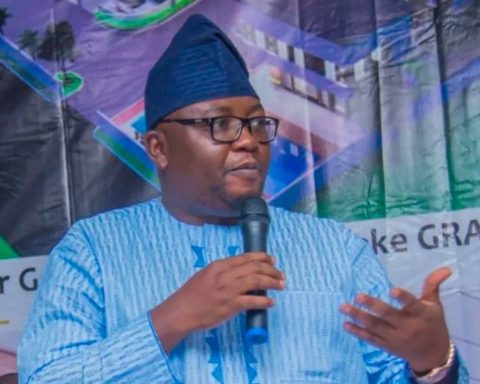Anambra State Governor Chukwuma Soludo has announced plans to build a new industrial city, describing it as a bold step towards economic transformation and infrastructural renewal.
Speaking at a recent event, Governor Soludo revealed that the state government has acquired 5,000 hectares of land along the bank of the River Niger, spanning parts of Obosi, Oba, Odepe, and nearby communities. The governor said the land is earmarked for the development of what he called the “New Onitsha” a reimagined, ultra-modern commercial hub.
Join our WhatsApp ChannelAccording to him, the proposed site will host a redesigned Onitsha Main Market, developed in line with the original blueprint conceived decades ago, but allegedly discarded by previous administrations. The new plan will include essential infrastructure such as parking lots and modern facilities, which are currently lacking in the existing market.
“The market was started on the wrong foot. The original architectural design had provisions for parking and other critical infrastructure, but that vision was compromised,” Soludo said.
“Now, we’re restoring that vision with the New Onitsha.”
Beyond the market, Soludo said the state government is designating an additional 200 hectares for the construction of what is projected to be the largest shopping mall in Africa a logistics hub designed to connect with the River Niger and interface with global trade networks.
He also disclosed that the state has commenced development of a new industrial city stretching from Aguluezechukwu to parts of Achalla in Awka North. Although an initial site was considered in the Omoabala region, which spans eight local government areas, flooding in 2022 led the government to identify alternative, flood-free zones.
“We’ve already acquired over 4,000 hectares in these new areas,” he said. “And we’re putting in a 33kva power line under Band A, which will ensure at least 22 hours of power daily for industries setting up there,” Soludo stated.
In support of these developments, the state has begun the construction of a 30-metre-wide access road across the area. Soludo emphasized that these efforts are part of the state’s five-pillar development agenda, with land acquisition and infrastructure forming the backbone.
As part of this strategy, the governor said Anambra is now creating a land data bank for industrial use. Interested investors or companies can submit development proposals to the government, and if approved, will be allocated land based on their needs and project capacity.
“This is a first for the state,” Soludo said. “For once, Anambra is intentional about structured land acquisition and distribution. We will only allocate land to those who are ready to develop, and we’ll provide clear timelines and milestones for delivery.”
To prevent speculation and misuse, the government will attach timelines for development. Companies that meet these conditions will be issued a Certificate of Occupancy (C of O), while land that is left undeveloped within the agreed timeframe may be withdrawn.
“Anambra has one of the smallest landmasses in Nigeria after Lagos. That’s why land here is expensive and must be used judiciously,” the governor said. “We are building a system that allows serious businesses to thrive, while preserving our land for high-impact development.”
Governor Soludo also hinted at the commencement of the Awka 2.0 project, with clearing already underway on another 5,000 hectares of land.
“These aren’t just projects on paper. They’re live, and we are very deliberate about seeing them through,” he concluded.
Amanze Chinonye is a Staff Correspondent at Prime Business Africa, a rising star in the literary world, weaving captivating stories that transport readers to the vibrant landscapes of Nigeria and the rest of Africa. With a unique voice that blends with the newspaper's tradition and style, Chinonye's writing is a masterful exploration of the human condition, delving into themes of identity, culture, and social justice. Through her words, Chinonye paints vivid portraits of everyday African life, from the bustling markets of Nigeria's Lagos to the quiet villages of South Africa's countryside . With a keen eye for detail and a deep understanding of the complexities of Nigerian society, Chinonye's writing is both a testament to the country's rich cultural heritage and a powerful call to action for a brighter future. As a writer, Chinonye is a true storyteller, using her dexterity to educate, inspire, and uplift readers around the world.












